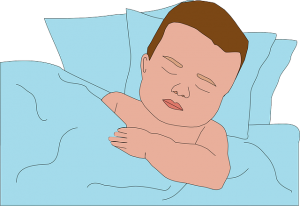Bed wetting problems
Everybody wets the bed until they learn how to stay dry.
The age by which most children have mastered night-time dryness is about four for girls, five for boys.
No one knows why girls are earlier (they also tend to be earlier in language development and controlling their tempers, so perhaps faster brain maturation is the answer).
At age eight about 8 percent of children- one in twelve-still wet the bed.
So if I see an eight-year-old who wets the bed, I can answer him that there is most likely at least one other child in his classroom who has the same problem.

Various wetting problems.
The medical term for wetting is enuresis.
There are three main types of wetting problems. In the most common, children stay dry during the day but not consistently at night.
Doctors call this problem primary nocturnal enuresis.
In the second, children who have stayed dry at night for a long time-five to six months at least-suddenly start wetting again.
Doctors call secondary nocturnal enuresis. The third is wetting during the day, which doctors call diurnal enuresis.
It helps to keep the types separate, since they often have different causes and require different treatments.
In particular, secondary nocturnal enuresis (wetting after a period of dry-ness) and diurnal enuresis to be caused by medical problems, such as infections or diabetes.
Occasionally, severe psychological stress, such as sexual abuse, can also cause a child to start wetting.
For these reasons, I think that any child with secondary or diurnal enuresis should be under the care of a well-trained doctor or nurse practitioner.
There is one exception to this: a young child, say four or five, who has been dry at night for several months may start wetting at night again in response to stress.
It might be the birth of a sibling, a move or another change. Patience and reassurance often do the trick.
In a few weeks, the child feels better and is able to stay dry at night again.
The rest of this section deals with primary nocturnal enuresis.
Causes:
Genetics plays a role.
Parents often believe that their children who wet the bed are deeper sleepers or harder to wake up than other children, but doctors who study children’s sleep patterns have found no evidence of this.
Children who wet the bed do not appear to have smaller bladders than other children. But it may be that their bladders are more prone to empty before they are completely full.
